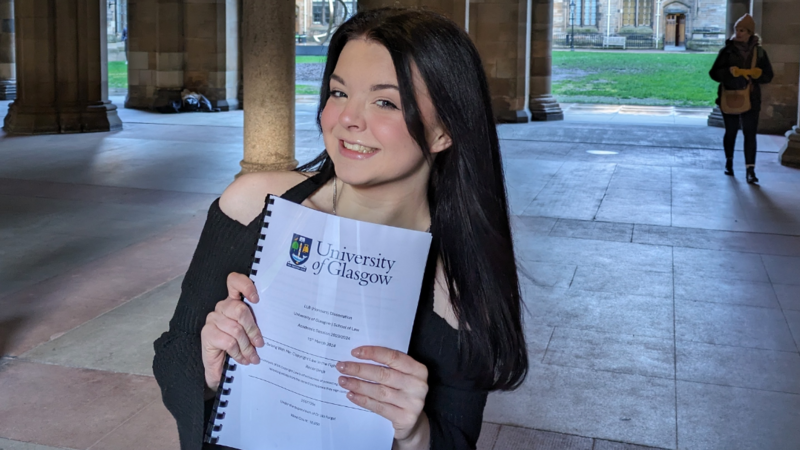CELEBRITY
Can you become a lawyer by listening to Taylor Swift?

While Taylor Swift was on her record-breaking Eras Tour, one Swiftie was using the star’s music in a bid to pass her law degree.
Regan Caie, a law student at the University of Glasgow, wrote her fourth-year dissertation about Swift’s re-recorded albums and copyright law.
The music star has re-recorded and re-released four of her first six albums over a copyright dispute with producer and artist manager Scooter Braun.
Regan, 21, said her dissertation combined her love of Swift’s music with her ambition to eventually specialize in copyright and intellectual property law. In the past year, Taylor Swift has dominated headlines on her Eras Tour – the highest-grossing concert tour of all time.
Now the star is bound for the home of Scottish rugby, Murrayfield Stadium, with over 200,000 Swifties set to flock to Edinburgh for three shows from 7-9 June.
Regan has tickets for the tour and joked that people won’t stop telling her to bring her dissertation with her.
“I actually can’t wait, I’m so excited,” she said, “We’re already planning our outfits.”Despite Regan being a massive lover of Swift’s music, it was actually her lecturer who first planted the idea for the dissertation.
“They mentioned that it would be funny if someone wrote about Taylor, and I just thought ‘Ok, bet!’,” Regan said.
Regan then spent nine months studying the subject while listening to her favorite Taylor tracks because “technically, it was researched”.
The completed dissertation was submitted in March. It was 10,000 words long and cited more than 150 sources.
Regan said her writing style included plenty of references to Swift to make the writing process “more bearable”.
Regan will get her final result on 11 June, two days after Swift’s last Edinburgh gig.
During Regan’s research, she found that Swift’s success with her re-recordings had led to some bad blood in the industry.
Contracts that prohibit re-recordings are nothing new, Regan said.
But what is different now is labels are “tightening up” contracts by extending the amount of time that must pass before musicians can re-record their songs, she said.
Previously contracts specified about five years before artists could re-record but in some cases, it is now 20 years, Regan said.











